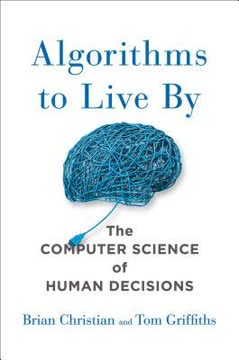Key Takeaways
1. Norms and social change: The power of unleashing suppressed preferences
"When norms start to collapse, people are unleashed, in the sense that they feel free to reveal what they believe and prefer, to disclose their experiences, and to talk and act as they wish."
Norm collapse unleashes change. Social norms often suppress people's true preferences and beliefs. When these norms weaken or collapse, it can lead to rapid and significant social change as people feel free to express their authentic selves. This process explains many social movements, from civil rights to LGBTQ+ equality.
Preference falsification hides true beliefs. People often hide their true preferences due to social pressure, leading to a false consensus. This can make social change seem impossible, but when people realize others share their views, change can happen quickly. Examples include:
- The fall of communist regimes
- The #MeToo movement
- Shifts in public opinion on same-sex marriage
Norm entrepreneurs drive change. Individuals or groups who challenge existing norms can trigger cascades of change. By making hidden preferences visible, they embolden others to speak out, potentially leading to rapid shifts in social attitudes and behaviors.
2. Group polarization: How discussion can lead to more extreme views
"Like polarized molecules, group members become even more aligned in the direction they were already tending."
Echo chambers amplify views. When like-minded individuals discuss issues, they tend to adopt more extreme positions than they held initially. This group polarization effect occurs due to:
- Limited argument pools: Groups mainly hear arguments supporting their pre-existing views
- Social comparison: Individuals adjust their positions to maintain their perceived relative stance within the group
- Confidence through corroboration: Hearing others express similar views increases confidence in one's own position
Consequences of polarization:
- Increased social and political divisions
- Difficulty in reaching compromises
- Potential for extremist ideologies to develop
Mitigating polarization: To counter these effects, it's important to:
- Expose people to diverse viewpoints
- Encourage critical thinking and self-reflection
- Create opportunities for constructive dialogue between opposing groups
3. The expressive function of law: Shaping social norms through legal statements
"Many people support law because of the statements made by law, and disagreements about law are frequently debates over the expressive content of law, rather than its consequences."
Laws as social signals. Laws don't just regulate behavior; they express societal values and shape social norms. This expressive function can be as important as the law's direct effects. Examples include:
- Civil rights legislation signaling the unacceptability of discrimination
- Environmental laws expressing society's commitment to sustainability
- Symbolic resolutions condemning historical injustices
Changing norms through law. By making statements about what society values, laws can:
- Stigmatize undesirable behaviors
- Legitimize and encourage positive actions
- Shift public perception on contentious issues
Balancing expression and consequences. While the expressive function is powerful, it's crucial to consider the practical impacts of laws. Purely symbolic legislation may have unintended consequences or fail to address real-world problems effectively.
4. Nudges: Subtle influences on behavior that preserve freedom of choice
"Nudges are choice-preserving interventions, informed by behavioral science, that can greatly affect people's choices."
Nudges as gentle guidance. Nudges are ways of influencing behavior without restricting options or significantly changing economic incentives. They work by:
- Altering the presentation of choices
- Leveraging cognitive biases and heuristics
- Making certain options more salient or convenient
Examples of effective nudges:
- Default opt-in for retirement savings plans
- Placing healthier food options at eye level in cafeterias
- Sending reminders for important appointments or deadlines
Benefits of nudging:
- Preserves individual freedom of choice
- Often low-cost to implement
- Can achieve significant positive outcomes in areas like health, finance, and environmental protection
Potential concerns: Critics argue that nudges can be manipulative or paternalistic, emphasizing the need for transparency and ethical considerations in their design and implementation.
5. The ethics of nudging: Balancing effectiveness with autonomy and dignity
"Transparency should be built into the basic practice."
Ethical considerations in nudging. While nudges can be powerful tools for positive change, they raise important ethical questions:
- Autonomy: Do nudges undermine individual decision-making?
- Manipulation: Are nudges a form of covert influence?
- Dignity: Do nudges treat people as less than fully rational agents?
Transparency as a safeguard. To address these concerns, nudges should be:
- Openly disclosed and explained
- Subject to public scrutiny and debate
- Designed to empower rather than exploit individuals
Balancing act. Ethical nudging requires:
- Clear goals aligned with societal values
- Respect for individual preferences
- Continuous evaluation of outcomes and unintended consequences
Beyond nudges. In some cases, more direct interventions (e.g., mandates or bans) may be necessary to address urgent societal issues, but these require even stronger ethical justification.
6. The intrinsic value of control: Why people resist paternalism
"Do not tell me what I can't do!"
Control as a fundamental desire. People often value having control over their choices, even when external guidance might lead to better outcomes. This preference for agency is rooted in:
- Psychological needs for autonomy and competence
- Distrust of authority figures or institutions
- Belief in personal expertise about one's own situation
The control premium. Research shows that people are often willing to pay a price (in terms of suboptimal outcomes) to maintain control over their decisions. This can lead to resistance against well-intentioned paternalistic policies.
Balancing control and welfare. Policy makers and choice architects face the challenge of:
- Respecting people's desire for control
- Providing beneficial guidance or intervention
- Finding ways to enhance both autonomy and welfare
Strategies for preserving agency:
- Offering meaningful choices within a structured framework
- Providing clear information to support informed decision-making
- Using "prompted choice" rather than default options in some situations
7. Moral heuristics: Simplifying complex ethical decisions
"Much of everyday morality consists of simple, highly intuitive rules that generally make sense but that fail in certain cases."
Moral shortcuts. Like cognitive heuristics, moral heuristics are mental shortcuts we use to navigate complex ethical terrain. These rules of thumb often work well but can lead to errors in unusual situations.
Common moral heuristics:
- "Do no harm" (leading to omission bias)
- "Nature is benign" (skepticism of human intervention)
- "Punishment should fit the crime" (focusing on retribution over deterrence)
Benefits and pitfalls:
- Benefits: Quick decision-making, consistency in everyday situations
- Pitfalls: Potential for moral errors in complex or novel scenarios
Refining moral judgment. To improve ethical reasoning:
- Recognize when we're relying on heuristics
- Consider consequences, not just rules
- Be open to revising intuitions in light of new information or arguments
8. Rights and consequentialism: Rethinking deontological intuitions
"Deontology is a moral heuristic for what really matters, and consequences are what really matter."
Challenging moral intuitions. Many people have strong deontological intuitions about rights and rules. However, recent research suggests these intuitions may be:
- Rooted in emotional responses rather than reasoned judgment
- Products of automatic (System 1) rather than deliberative (System 2) thinking
- Potentially at odds with what truly promotes human welfare
The case for consequentialism. While deontological principles often lead to good outcomes, a focus on consequences may be more ethically defensible because it:
- Allows for more flexible responses to complex situations
- Avoids potential contradictions or absurd implications of rigid rules
- Aligns more closely with our considered judgments about what matters morally
Bridging the divide. Rather than completely rejecting deontological thinking, we can:
- Use rights and rules as useful heuristics for promoting good consequences
- Scrutinize our moral intuitions more carefully, especially in novel situations
- Develop a more nuanced ethical framework that incorporates both principled and consequentialist considerations
9. The rise of partyism: Political polarization's impact on society
"Partyism is real and on the rise, and that it has serious adverse consequences for governance, politics, and daily life."
Defining partyism. Partyism refers to prejudice and hostility based on political party affiliation. It manifests as:
- Negative stereotyping of opposing party members
- Unwillingness to associate with or trust those from the other party
- Difficulty in finding common ground on policy issues
Evidence of increasing partyism:
- Growing disapproval of inter-party marriages
- Bias in hiring and scholarship decisions based on party affiliation
- Stronger emotional reactions to political opponents than to other out-groups
Causes of partyism:
- Increasing ideological sorting of parties
- Negative political campaigns
- Echo chambers in media and social networks
Consequences for society:
- Gridlock in governance and policymaking
- Erosion of social trust and cohesion
- Difficulty in addressing complex societal challenges
Addressing partyism: To mitigate its effects, we need to:
- Promote exposure to diverse political viewpoints
- Encourage civil discourse and finding common ground
- Design institutions that incentivize cooperation across party lines
Last updated:
Review Summary
How Change Happens received mixed reviews, with an average rating of 3.10/5. Some readers found it insightful and thought-provoking, particularly regarding behavioral economics and social norms. Others criticized the book for lacking coherence and not fully delivering on its title's promise. Many noted that it felt like a collection of disconnected essays rather than a unified work. While some appreciated Sunstein's nuanced approach, others found it too dense or repetitive of his previous writings. The book's coverage of nudge theory and ethics sparked both interest and frustration among readers.
Similar Books







Download PDF
Download EPUB
.epub digital book format is ideal for reading ebooks on phones, tablets, and e-readers.












